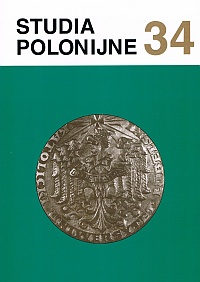Polish Exiles after the January Uprising in the South of the Yenisey Guberniya in the Second Half of the Nineteenth Century
Main Article Content
Abstract
In the years of 1863-1867, around 25 200 Poles were exiled to European Russia, to Caucasus, and Siberia. The majority of Poles were exiled to the Yenisey Guberniya after the January Uprising. Until 1863, 80-90% of political exiles belonged to higher and enlightened social spheres; one can say that they were the elite of the Polish nation. After 1863, the composition of the exiles was different: many simple people fought in the insurgent groups. Under new conditions in exile, the representatives of the lower social spheres most often married the local inhabitants because they could rely on some help from their wives’ families, could make their homestead stable, and establish a permanent foundation for their life in Siberia. Most certainly more exiled Poles would have married and stayed in Siberia, had there been no amnesty. Not all the Poles, however, took advantage of this amnesty. After their return to their homeland they often complained that they could find no compassion on the part of society, were treated with indifference, and the great merits of the Poles in Siberia were neglected.
Those Poles who stayed in Siberia after the amnesty, had contributed to the development of Siberia at the turn of the nineteenth and twentieth centuries. The Polish intelligentsia in the Yenisey Guberniya deserve our special attention: first and foremost they worked in education and brought medical assistance to the local people. Ancestors of the January Uprising exiles have been establishing Polonia cultural and national associations since the 1990s.

